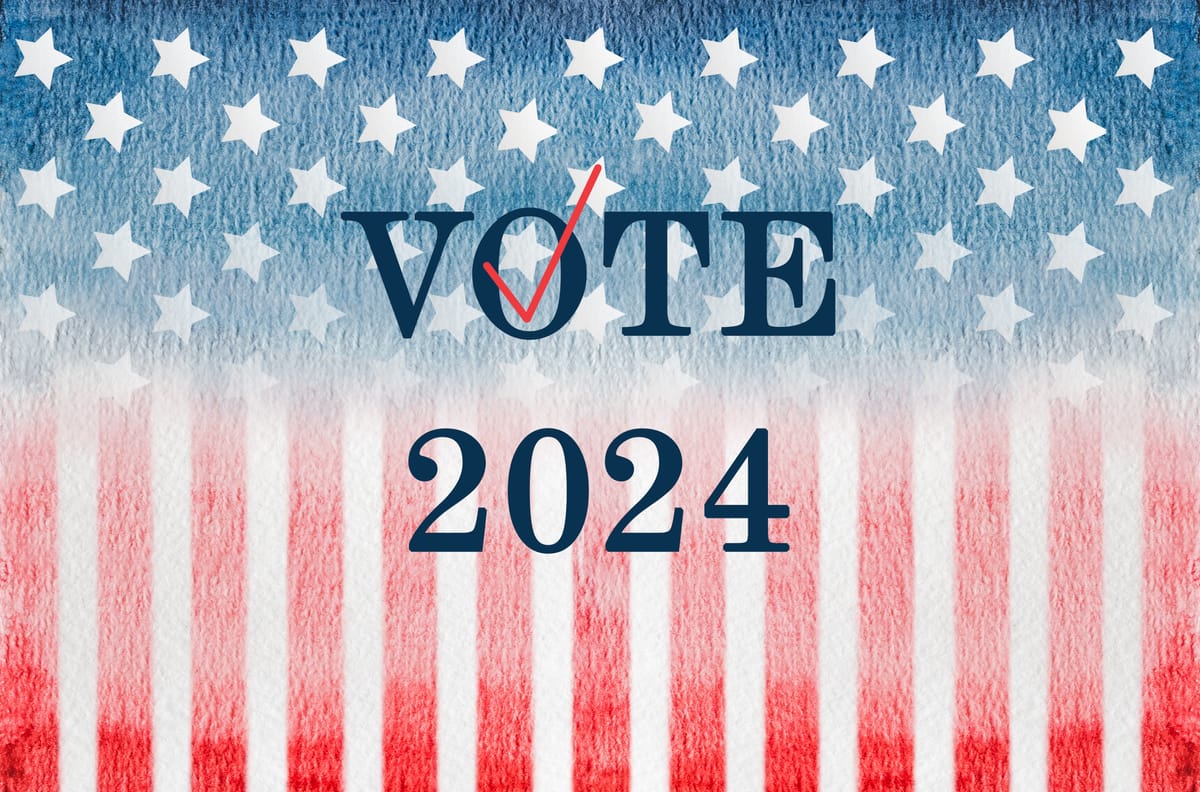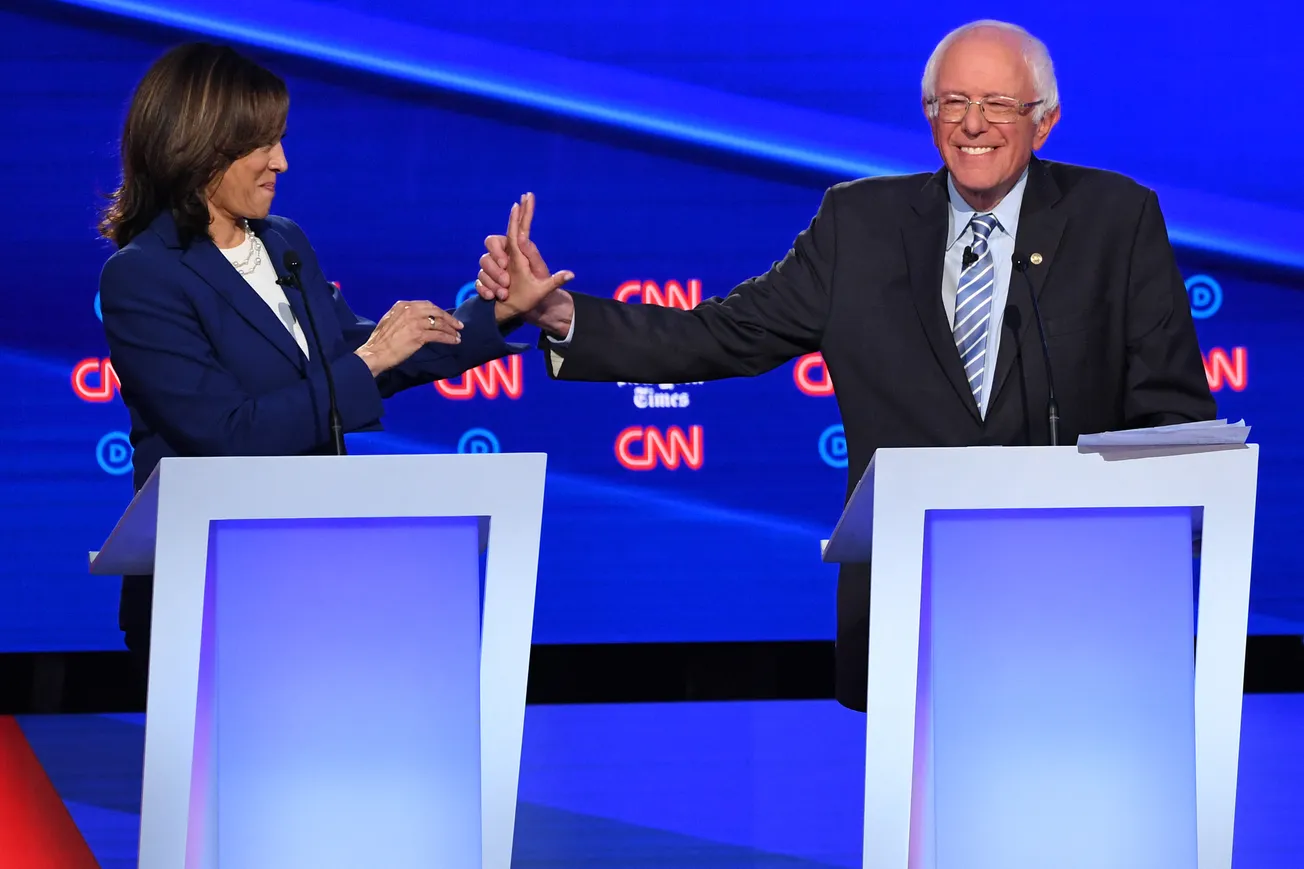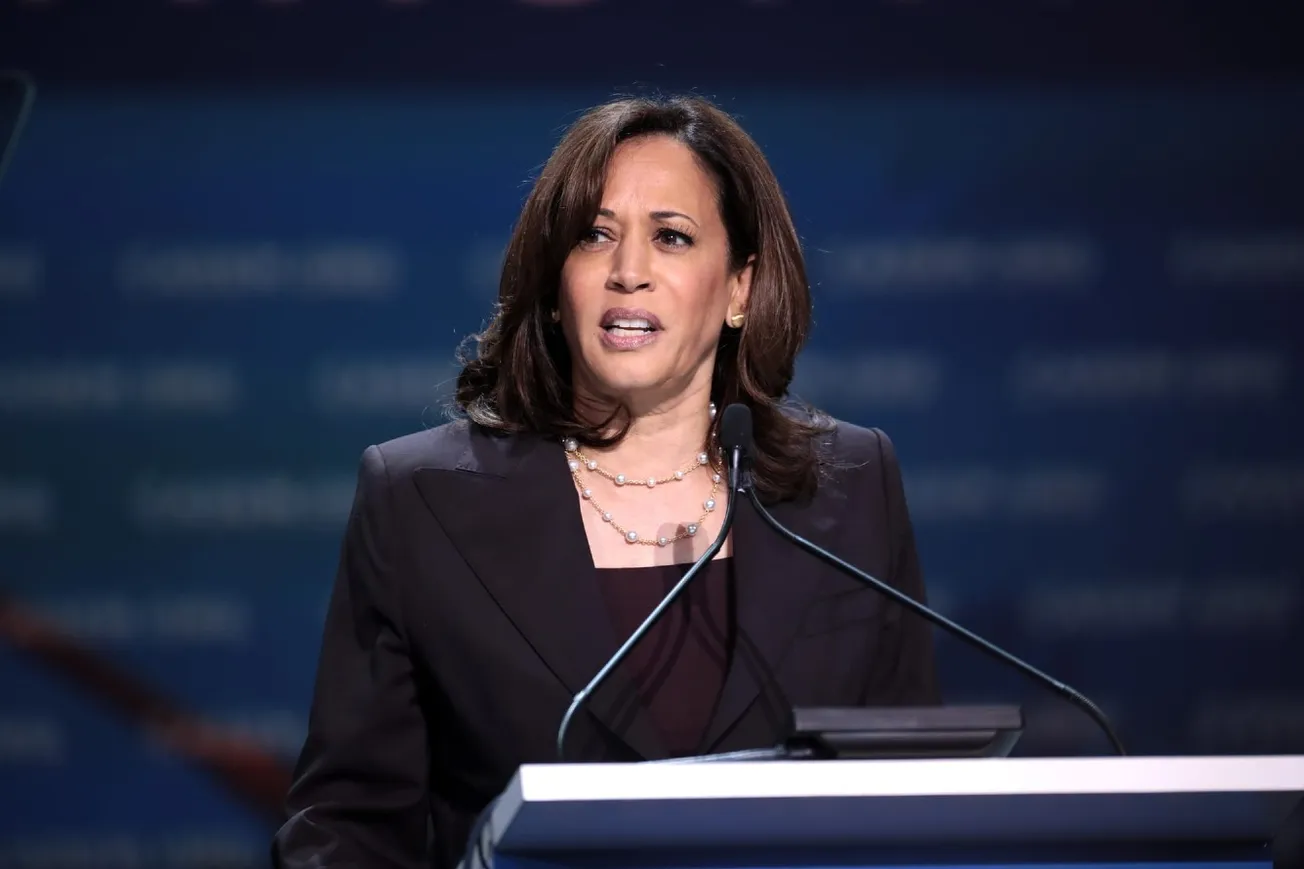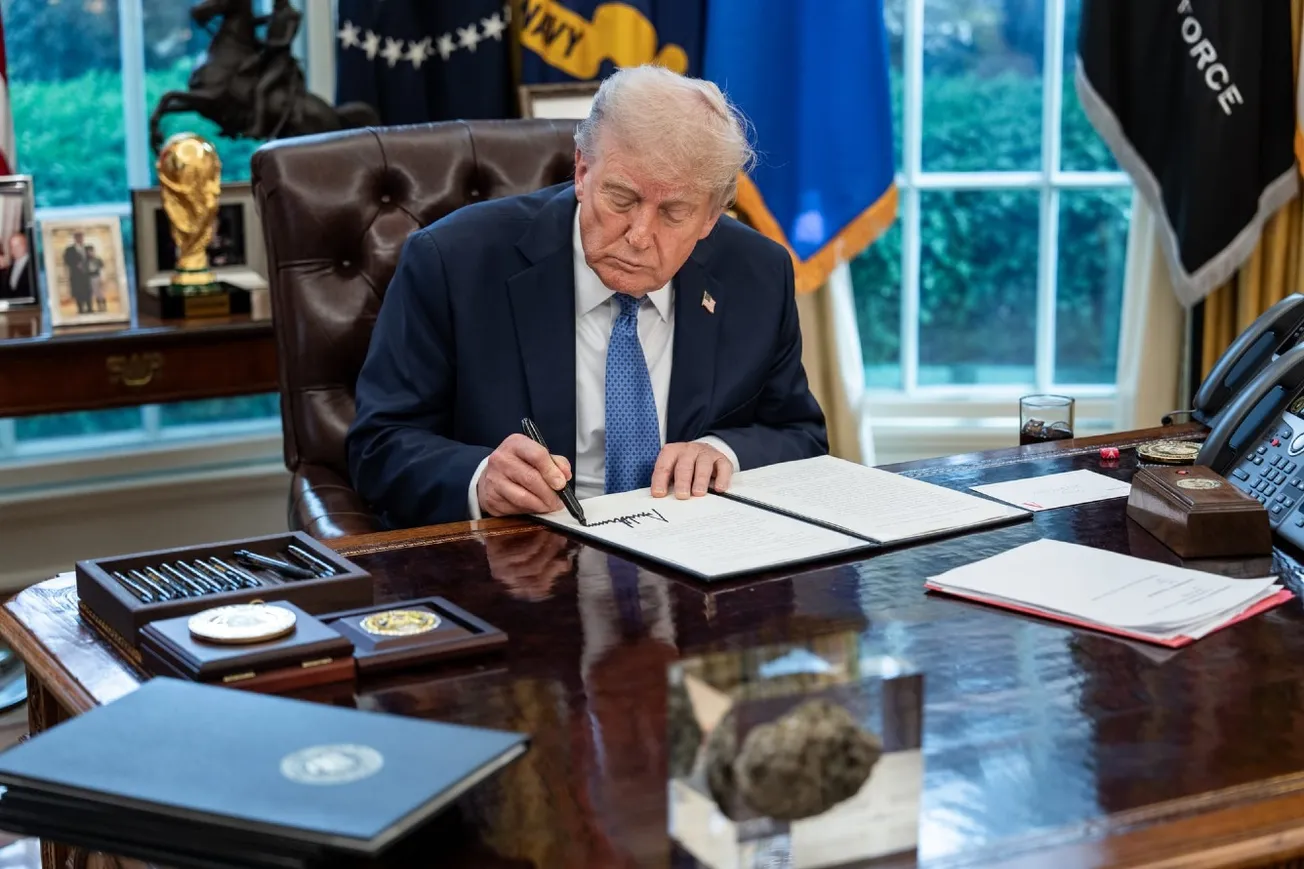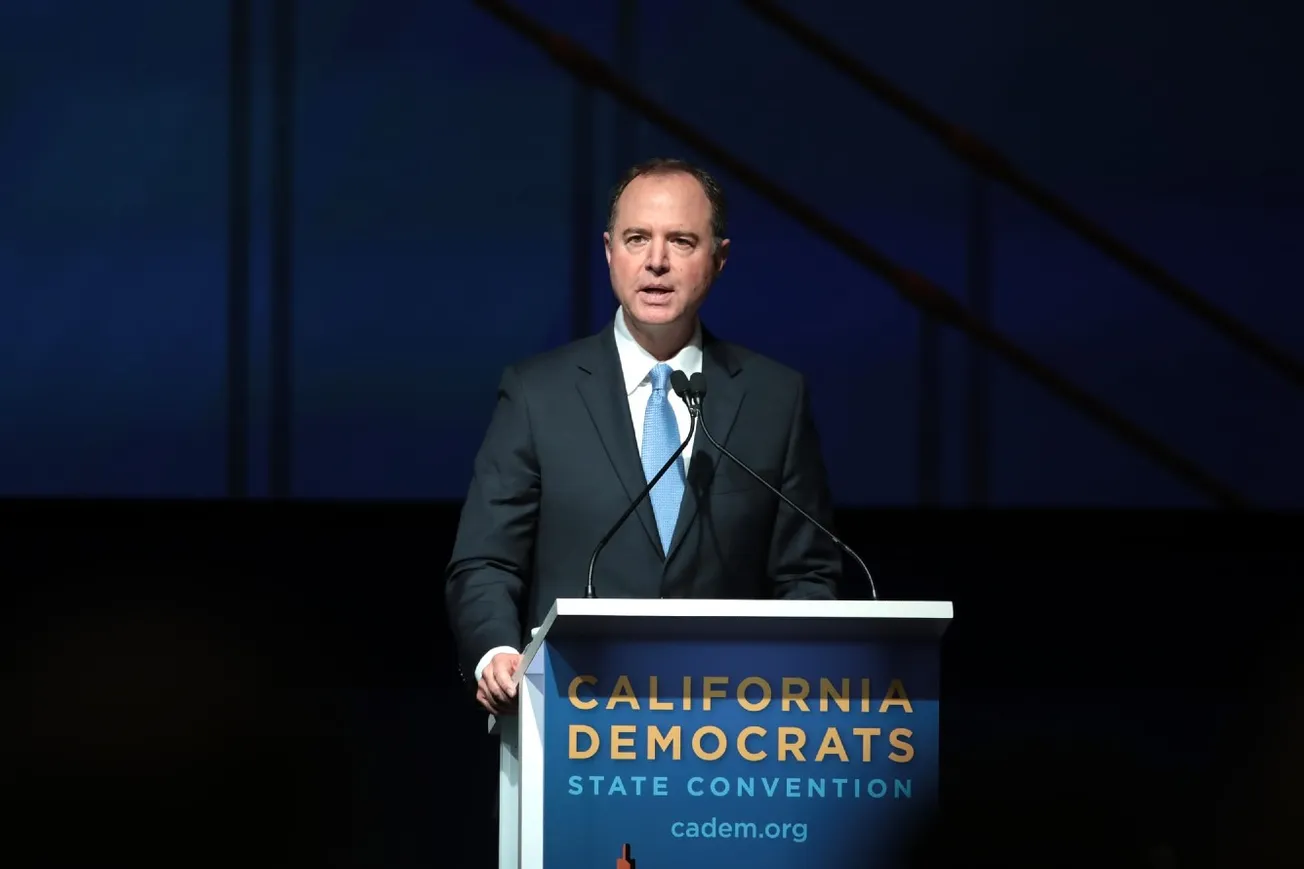If Kamala Harris has her way, she will bring back Soviet-era price controls to your neighborhood grocery store.
If you thought Venezuela was a retarded country for trying price controls and attacking private businesses, we now have a major party nominee proposing the same failed methods. Harris is expected to unveil her plans in North Carolina today, according to NBC News’ Yamiche Alcindor, who covers the Harris-Walz campaign.
Harris knows her campaign is vulnerable to attacks that Biden-Harris caused America's inflation mess. Biden constantly promoted Bidenomics, which refers to the government spending borrowed money in preferred sectors (green energy, environment, infrastructure, manufacturing) and rebuilding the economy from the bottom up. It is the philosophical opposite of the Reagan-Bush era of trickle-down economics, which theorized that lower taxes would starve the government from spending and trigger economic activity enough to offset the loss.
When President Biden took office in January 2021, the national debt was approximately $27.8 trillion. As of August 2024, it is over $35 trillion. That is, the national debt has increased by about $7.3 trillion under the Biden administration. With excessive deficit spending, increased regulation of the oil industry- including canceling pipeline infrastructure projects- and supply chain issues worsening the situation following factory lockdowns during the pandemic, too much money began to chase too little product. As any high school economics student knows, this is the classic definition of inflation.
If it had not been for West Virginia Sen. Joe Manchin, Vice President Harris, who aggressively promoted the $6 trillion Build Back Better (BBB) plan, would have wrecked the economy even more, perhaps to a point of no return. Harris was not alone. Six months before BBB died in the Senate, Treasury Secretary Janet Yellen was also making the rounds pushing for BBB. She famously justified her support for BBB by maintaining that inflation was transitory. In June 2022, when all administration officials were consumed with BBB talk, consumer prices were at the highest levels in four decades. Clearly, Harris still doesn't understand what caused America's worst inflation since the mid-1970s and was recklessly for proposals to pump even more borrowed money into the economy through BBB.
Now, as the party's flag bearer on how to tackle stubborn inflation- which has increased average prices by nearly 20% since Biden took office- she wants to bring back Soviet-era price controls by going after "greedy" corporations that have engaged in price gouging. Price controls are government-imposed limits on the prices charged for goods and services in the market.
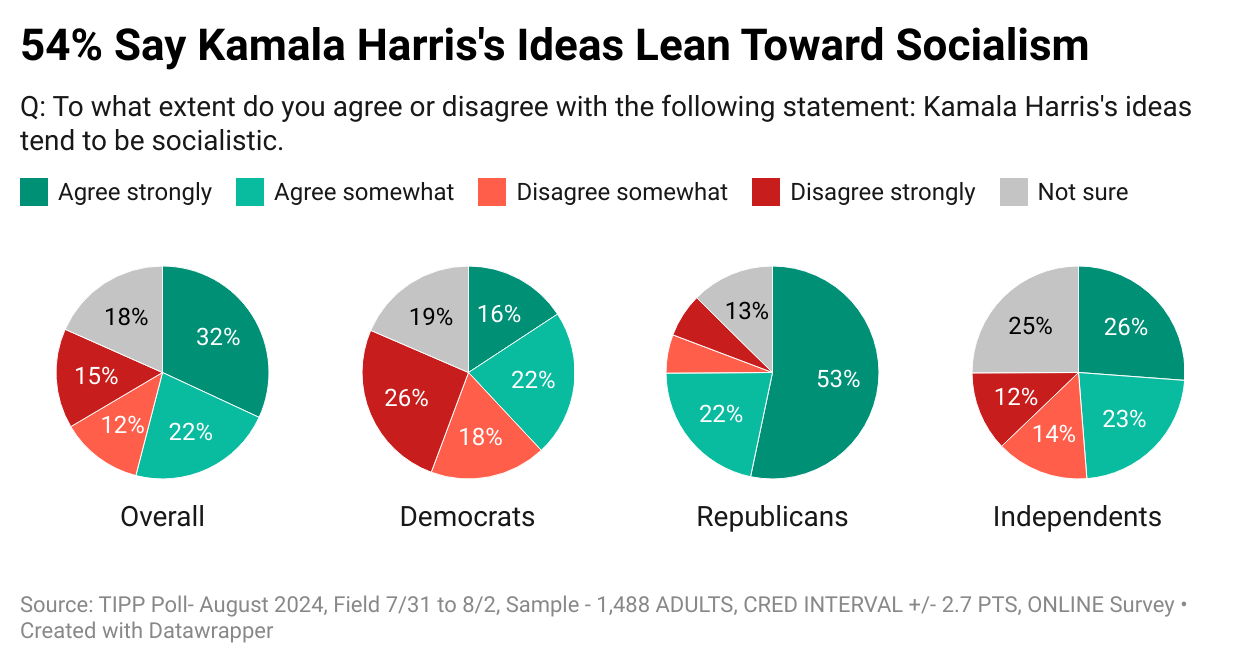
Price ceilings are typically used to keep essential goods affordable during shortages or crises like war. Rent control is a common type of price ceiling. However, if set below the market equilibrium price, price ceilings can lead to shortages, as demand may exceed supply at the capped price.
Harris wants to use the FTC to target corporations in the food and grocery industries by imposing the first-ever federal ban on corporate price-gouging. The grocery store business is exceedingly competitive, and margins are narrow, averaging 2%. A threat of fines from the FTC or litigation will force store owners to limit hiring and lay off employees, the only variable cost that a store can reasonably control. It will further exacerbate consumer experiences at the store with no assurances that prices will come down.
As a legal matter, federal courts will likely dismiss every case brought by the FTC as government overreach. Companies might argue that price controls violate the Constitution's Due Process Clause by unfairly depriving them of their property or economic rights without just compensation or a fair hearing. Under the Fifth Amendment, companies might claim that price controls amount to a "taking" of their property (i.e., their ability to charge market rates) without adequate compensation, thus arguing a violation of the Takings Clause.
Companies could argue that price controls breach existing contracts or agreements. The food business, which relies on economies of scale, is highly concentrated among a few vast producers, like Nestle, Cargill, Tysons Foods, PepsiCo, and General Mills. Both producers and grocery stores could argue that if they have long-term contracts that are adversely affected by price controls, Harris's regulations would interfere with their contractual obligations and rights.
Lowering the cost of production and transportation of food from the farm to the market is one way to address grocery store prices. Energy is the most crucial cost component for every player in the food-to-grocery shelf value chain.
In December 2019, during the Trump administration, America became a net energy exporter for the first time in 60 years. Diesel, the primary fuel that powers the heavy machines and trucks that produce and transport food to the grocery store near you, averaged $3.10 a gallon. In June 2022, when inflation was about the highest under Biden-Harris, diesel averaged $5.70 a gallon.
The Harris price control proposal reminds us of the old saying: "To a person with a hammer, everything looks like a nail." If someone has a particular skill or tool, they might apply it to every situation, even when it might not be the most appropriate approach.
For someone who has never made private payroll and has always relied on a government paycheck, Harris understands only one tool: using government power on private businesses.
Her young campaign staff should review what happened during the 1970s. Starting in 1971, America had a miserable experience with Nixon's price controls. Initially, they helped stabilize prices, but over time, they led to shortages and inefficiencies. The controls were phased out by 1974, as they were not sustainable and caused severe distortions in the market.
Americans don't want to see bread lines, Soviet-style, at their neighborhood supermarket. If Harris has her way, this is precisely what will be.
Rajkamal Rao is a columnist and a member of the tippinsights editorial board. He is an American entrepreneur and wrote the WorldView column for the Hindu BusinessLine, India's second-largest financial newspaper, on the economy, politics, immigration, foreign affairs, and sports.
